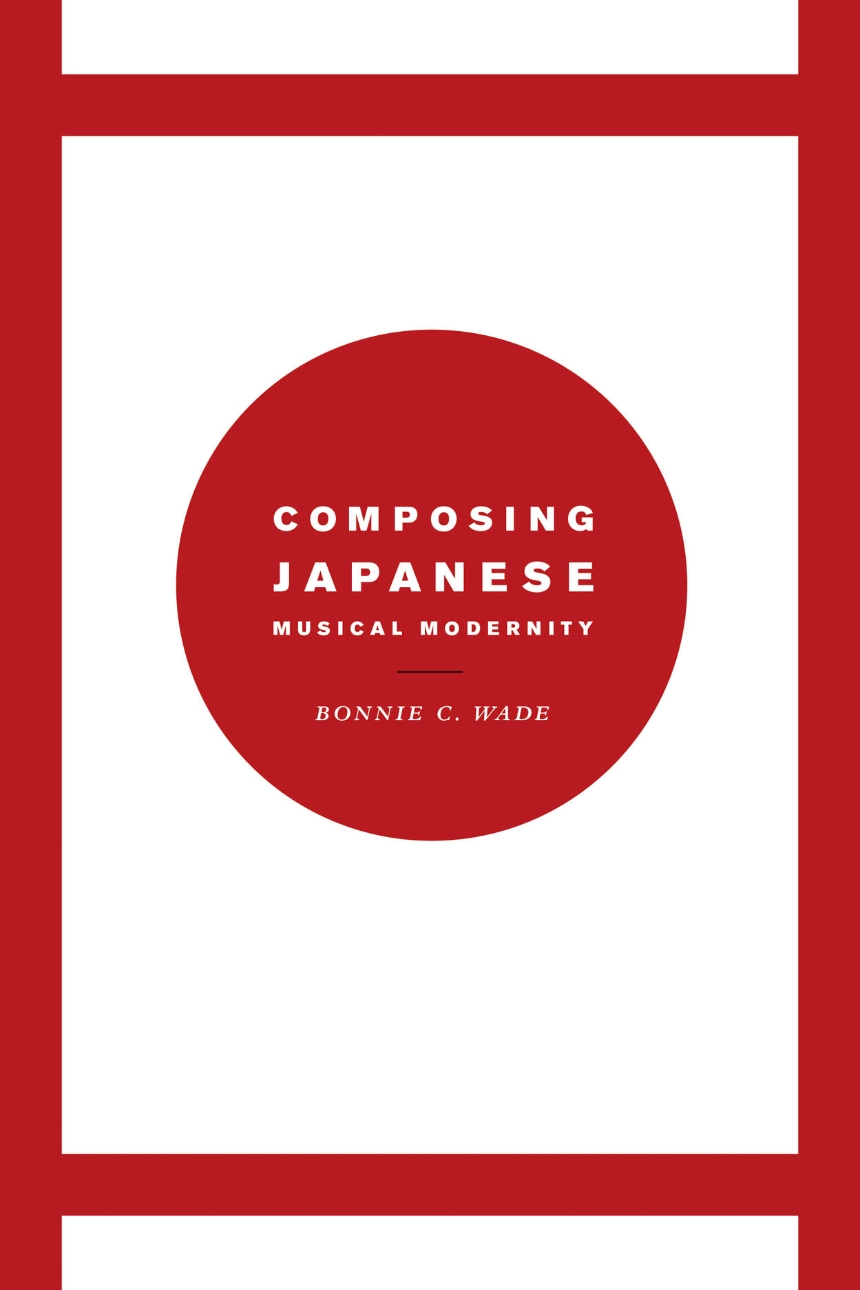Composing Japanese Musical Modernity
When we think of composers, we usually envision an isolated artist separate from the orchestra—someone alone in a study, surround by staff paper—and in Europe and America this image generally has been accurate. For most of Japan’s musical history, however, no such role existed—composition and performance were deeply intertwined. Only when Japan began to embrace Western culture in the late nineteenth century did the role of the composer emerge. In Composing Japanese Musical Modernity, Bonnie Wade uses an investigation of this new musical role to offer new insights not just into Japanese music but Japanese modernity at large and global cosmopolitan culture.
Wade examines the short history of the composer in Japanese society, looking at the creative and economic opportunities that have sprung up around them—or that they forged—during Japan’s astonishingly fast modernization. She shows that modernist Japanese composers have not bought into the high modernist concept of the autonomous artist, instead remaining connected to the people. Articulating Japanese modernism in this way, Wade tells a larger story of international musical life, of the spaces in which tradition and modernity are able to meet and, ultimately, where modernity itself has been made.
Wade examines the short history of the composer in Japanese society, looking at the creative and economic opportunities that have sprung up around them—or that they forged—during Japan’s astonishingly fast modernization. She shows that modernist Japanese composers have not bought into the high modernist concept of the autonomous artist, instead remaining connected to the people. Articulating Japanese modernism in this way, Wade tells a larger story of international musical life, of the spaces in which tradition and modernity are able to meet and, ultimately, where modernity itself has been made.
272 pages | 1 halftone | 6 x 9 | © 2013
Chicago Studies in Ethnomusicology
Asian Studies: East Asia
History: Asian History
Music: Ethnomusicology
Reviews
Table of Contents
Acknowledgments
Introduction
Part I: Composers in the Infrastructures of Japanese Modernity
Chapter 1. The Primary Connection: Music and Education
Chapter 2 Connectivities of Government, Education, Industry, and Commerce
Part II: Japanese Composers in Shared Cultural Spaces of Western Music
Chapter 3 International Participation in the Shared Space of Concert Music in the Global Cosmopolitan Culture
Chapter 4 Hogaku in the Environment of Shared Cultural Space in Japanese Musical Modernity
Part III: The Presence in Japan of European Spheres of Musical Participation
Chapter 5 Composing for European Instrumental Ensembles
Chapter 6 Composing for Chorus
Conclusion
Chronology
Notes
Glossary
Bibliography
Index